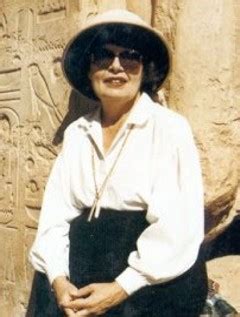A Quote by Steig Larsson
It did no good to cry, she had learned that early on.
Related Quotes
Dena had always been a loner. She did not feel connected to anything. Or anybody. She felt as if everybody else had come into the world with a set of instructions about how to live and someone had forgotten to give them to her. She had no clue what she was supposed to feel, so she had spent her life faking at being a human being, with no idea how other people felt. What was it like to really love someone? To really fit in or belong somewhere? She was quick, and a good mimic, so she learned at an early age to give the impression of a normal, happy girl, but inside she had always been lonely.
although she went home that night feeling happier than she had ever been in her short life, she did not confuse the golf course party with a good party, and she did not tell herself she had a pleasant time. it had been, she felt, a dumb event preceded by excellent invitations. what frankie did that was unusual was to imagine herself in control. the drinks, the clothes, the instructions, the food (there had been none), the location, everything. she asked herself: if i were in charge, how could i have done it better?
I learned early that crying out in protest could accomplish things. My older brothers and sister had started to school when, sometimes, they would come in and ask for a buttered biscuit or something and my mother, impatiently, would tell them no. But I would cry out and make a fuss until I got what I wanted. I remember well how my mother asked me why I couldn't be a nice boy like Wilfred; but I would think to myself that Wilfred, for being so nice and quiet, often stayed hungry. So early in life, I had learned that if you want something, you had better make some noise.
Jo's face was a study next day, for the secret rather weighed upon her, and she found it hard not to look mysterious and important. Meg observed it, but did not troubled herself to make inquiries, for she had learned that the best way to manage Jo was by the law of contraries, so she felt sure of being told everything if she did not ask.
She had, without realizing it at the time, learned to follow Nick's gaze, learned to learn his lust...his desires remained memorized within her. She looked at the attractive women he would look at...She had become him: she longed for these women. But she was also herself, and so she despised them. She lusted after them, but she also wanted to beat them up. A rapist. She had become a rapist, driving to work in a car.
The doctor's wife wasn't a bad woman. She was sufficiently convinced of her own importance to believe that God actually did watch everything she did and listen to everything she said, and she was too taken up with rooting out the pride she was prone to feeling in her own holiness to notice any other failings she might have had. She was a do-gooder, which means that all the ill she did, she did without realizing it.
I don't get a chance to cry that often on film, so I was hoping that talent would come my way, that day. I cheated, I guess, when I just started looking at my technology device - my iPhone - to look at pictures of my kids, before I did the scene where I had to cry. That was a good trick that I found.
At that moment a very good thing was happening to her. Four good things had happened to her, in fact, since she came to Misselthwaite Manor. She had felt as if she had understood a robin and that he had understood her; she had run in the wind until her blood had grown warm; she had been healthily hungry for the first time in her life; and she had found out what it was to be sorry for someone.































